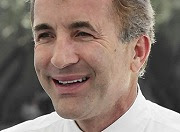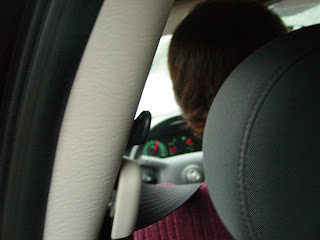the summer just goes by so fast . . .
 Yes it does! Classes started today in fact, but I feel like it was just the beginning of June last week. Oh well, the summer was fun and I think that I did some pretty cool stuff (besides getting married).
Yes it does! Classes started today in fact, but I feel like it was just the beginning of June last week. Oh well, the summer was fun and I think that I did some pretty cool stuff (besides getting married).
For instance, I held two jobs over the summer. Firstly, I was a teaching assistant for a class concerning research methods in clinical psychology. Not my particular field of interest, but it was pretty nice regardless. We only had like 6 students. I mostly ran the labs where they conducted two research projects. One project was an online environmental attitudes survey, where some questions were borrowed from another survey collected in the 80's. Essentially, the students were supposed to look at how attitudes on the environment have changed in the past twenty years. For their other project, I had them rate tape recordings of psychiatric patients. The patients participated in a series of role plays as a measure of social skills. The students then rated the tapes based on a set of criteria for conversational content as well as non-verbal content. This was mostly an exercise for the students so that they had experience conducting inter-rater reliability estimates. We wanted them to know how hard it is to obtain good reliability with these types of procedures. You don't really get that kind of knowledge just from reading journal articles.
My other job was as a research consultant at The Glennan Center for Geriatrics and Gerontology at Eastern Virginia Medical School. This was a pretty cool job as well. I worked for Dr. Barbara Freund, who mostly conducts driving simulation research on patients with Alzheimer's. Well, over the summer she obtained two new simulators from Raydon Corp. My project pretty much was centered around conducting quality assurance tests on the simulators to make sure that they were fit for participants in future studies. But she also let me participate in whatever else she had going on that I may have been interested in, which was cool. I really enjoyed it there. I thought that it would be like playing video games all day, but interestingly enough it wasn't. I still have to write a post about "simulator sickness," which I've wanted to write since June . . . just haven't had the time I suppose. It'll be up here soon though. What's really cool is that she's letting me work for her during the academic year, as research on the side . . . because I'll always need the extra experience. Of course this will only happen if my schedule permits it, my thesis is my number one priority!
So that's what the majority of my summer was spent on, although I also spent a lot of time teaching my wife how to play racquetball. She's gotten really good too! We both have also spent a lot of time studying for the GRE's. We're both nearing the end of our Master's programs (hers is in Literature) and we definitely want to go on for our Doctorates. That means we have to go through the lovely process of applying to graduate school again . . . YEA! (can you feel the horror?) Once more, we are trying to get into the same school! It'll work out somehow though. I'm actually not that worried about it.
Well, that was my summer. I now have a semester off solid work to look forward to, but it's cool because I'm really looking forward to the research opportunities that I will be participating in this semester, including my thesis on social ostracism/exclusion. I'm also taking a required course on psychopathology, and will probably audit the evolutionary psychology course offered through our department. Lastly, I will be the teaching assistant for my research advisor, Dr. John Nezlek, which is very cool! He's brilliant, so the more time I spend around him, hopefully the more I'll pick up. The course is "Research Methods of Social Psychology," which is a perfect fitting for me. I'll be controlling the labs for the course, but will be sitting in on the classes as well. And the first meeting will be tomorrow!
That's all for now!





